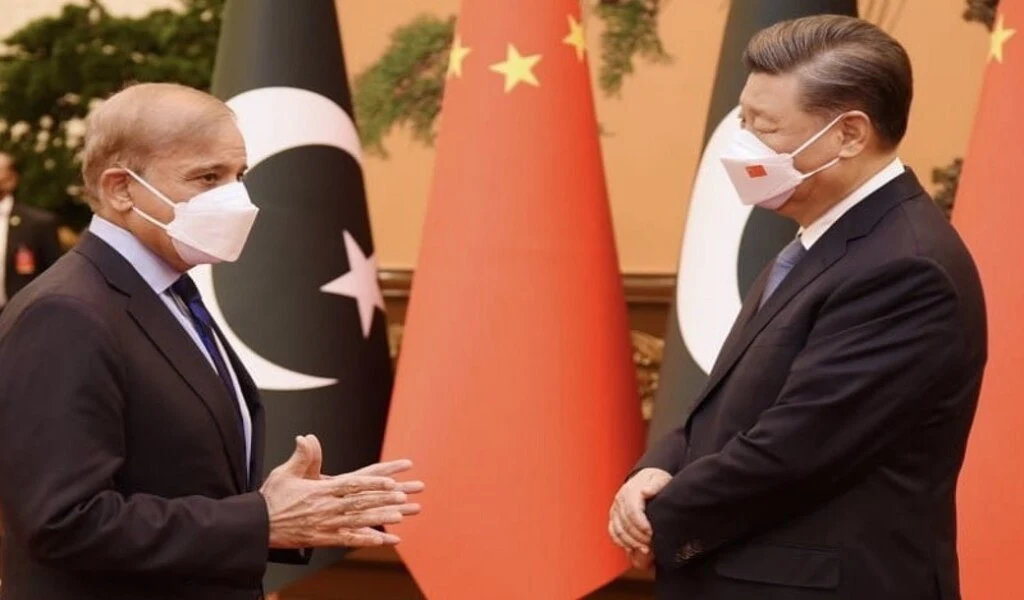News
China Agrees to Reschedule $2 Billion Debt, Easing Pakistan’s Financial Burden

(CTN News) – In a significant move, China has extended its support to Pakistan by agreeing to reschedule over $2 billion of publicly guaranteed debt. This decision is a major relief to the Pakistani government, which is currently focused on rebuilding its foreign exchange reserves through fresh loans and debt rollovers.
The Cabinet’s Economic Coordination Committee (ECC) has approved the revised terms of the agreement reached between Islamabad and Beijing, signifying a positive step in the economic partnership between the two nations. Let’s explore the details of this debt relief and its impact on Pakistan’s financial stability.
China’s Support and the Power Plants in Karachi:
Pakistan has received significant financial assistance from China, particularly in infrastructure projects. The country has built two nuclear power plants in Karachi, boasting a combined generation capacity of 2,117 megawatts.
These power plants were financed with a loan of $6.5 billion from China’s Export-Import (Exim) Bank. However, a portion of this debt, amounting to over $2 billion, was scheduled to mature within the next two years.
To address Pakistan’s debt repayment challenges, China has agreed to pause these repayments, providing much-needed breathing space to the Pakistani government.
China’s Crucial Role in Debt Obligations:
China has repeatedly played a pivotal role in helping Pakistan meet its debt obligations. By providing new loans and facilitating the rollover of existing debts, China has been instrumental in preventing defaults on international debt obligations.
An example is China’s timely refinancing of Pakistan’s $1.3 billion commercial loans in June, rescuing the nation from a potential default during a stalled International Monetary Fund (IMF) program.
Boosting Foreign Exchange Reserves:
The debt rescheduling agreement is critical when Pakistan is focused on rebuilding its foreign exchange reserves. Before the new IMF program was signed, the country’s gross official foreign exchange reserves had plummeted to a critically low level of $4.5 billion.
However, with the recent agreement and subsequent financial arrangements, Pakistan’s foreign exchange reserves have bounced back to $8.7 billion, bolstering the country’s economic stability.
ECC’s Endorsement and Investment Facilitation:
Pakistan’s Economic Coordination Committee (ECC) officially approved the revised agreement with China, indicating the government’s commitment to managing its debt obligations effectively.
In addition to debt relief, the ECC approved a technical supplementary grant of Rs200 million in favor of the Special Investment Facilitation Council (SIFC).
The SIFC, established to attract foreign investment in various sectors, including defense, agriculture, minerals, IT, and energy, will now be able to operate effectively with this financial support.
Reviving Pakistan’s Film Industry and Tobacco Cess Rates:
To revive the film industry in Pakistan, the ECC approved a proposal to charge electricity rates for cinemas at the same level as other industries. Furthermore, the ECC also approved revised cess rates on various varieties of tobacco, leading to increased government revenue to cover salary costs due to recent budgetary increases.
Sui Mining Lease Issue Deferred:
The ECC deferred a summary about the expired lease of Sui Mining, directing the government of Balochistan to be involved in resolving the matter. The lease for Sui Mining had expired in 2015, and the ECC is working on finding an agreeable solution with the involvement of relevant stakeholders.
Conclusion:
China’s support in rescheduling Pakistan’s debt has provided significant relief to the government and facilitated the rebuilding of foreign exchange reserves. The ECC’s approval of the revised agreement demonstrates the nation’s commitment to effectively manage its financial obligations.
Moreover, various decisions made during the ECC meeting, such as facilitating investment and supporting key industries, indicate the government’s efforts to bolster economic growth and stability in Pakistan.




























